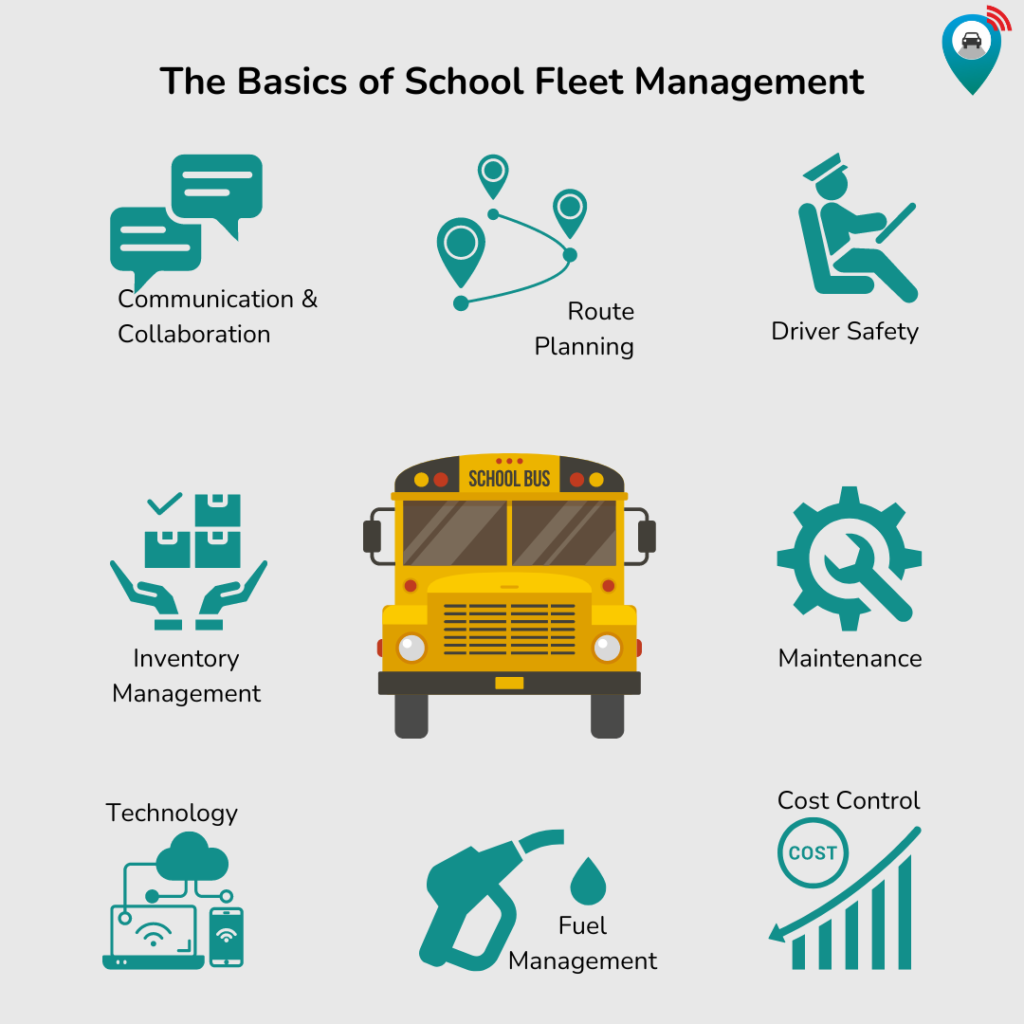
School fleet management involves overseeing the vehicles used by educational institutions for various purposes, such as transporting students, faculty, and staff, as well as for activities like field trips and sports events. Efficient management of school fleets ensures safety, compliance with regulations, cost-effectiveness, and overall smooth operation. Here are some basics to consider:
- Vehicle Maintenance: Regular maintenance is crucial for ensuring the safety and longevity of school vehicles. Establish a schedule for routine inspections, oil changes, tire rotations, and other necessary maintenance tasks. Keep detailed records of maintenance and repairs for each vehicle.
- Driver Training and Safety: Proper training for drivers is essential to ensure the safe operation of school vehicles. Drivers should be trained in defensive driving techniques, student management, emergency procedures, and local traffic laws. Emphasize the importance of safety protocols, such as wearing seat belts and adhering to speed limits.
- Route Planning and Optimization: Efficient route planning can help minimize fuel consumption, reduce emissions, and optimize travel time. Utilize GPS technology and route planning software to identify the most efficient routes for transportation routes, especially for bus services.
- Fuel Management: Monitor fuel usage and implement strategies to reduce fuel costs and minimize environmental impact. Consider options such as using alternative fuels, promoting eco-driving techniques among drivers, and maintaining vehicles to optimize fuel efficiency.
- Inventory and Asset Management: Keep track of all vehicles in the school fleet, including their usage, maintenance history, and depreciation. Implement an inventory management system to track spare parts, equipment, and supplies needed for vehicle maintenance and repair.
- Budgeting and Cost Control: Develop a comprehensive budget for school fleet operations, including expenses related to vehicle acquisition, maintenance, fuel, insurance, and personnel. Regularly review expenses and look for opportunities to reduce costs without compromising safety or quality of service.
- Communication and Collaboration: Foster open communication and collaboration among all stakeholders involved in school fleet management, including administrators, drivers, maintenance staff, and parents. Encourage feedback and suggestions for improving operations and addressing concerns.
- Technology Integration: Utilize technology solutions such as GPS tracking systems, fleet management software, and telematics devices to monitor vehicle performance, track driver behavior, and streamline administrative tasks. These tools can provide valuable insights for optimizing fleet operations and improving overall efficiency.
School fleet management involves overseeing vehicles utilized by educational institutions for transportation purposes, with the integration of solutions like Iksha School Bus Management Solution. It encompasses maintaining vehicles, ensuring regulatory compliance, planning routes, managing fuel usage, tracking inventory, budgeting, preparing for emergencies, fostering communication, and leveraging technology. Effective management ensures safety, adherence to regulations, cost-efficiency, and seamless operations in transporting students and staff. With Iksha School Bus Management Solution powered by Data Driven Intelligence, schools can further optimize routes, monitor driver behavior, enhance communication with parents, and streamline administrative tasks for improved efficiency and safety.

